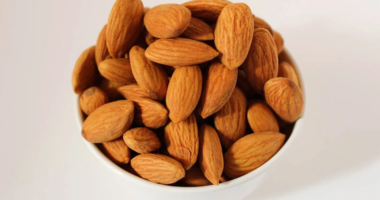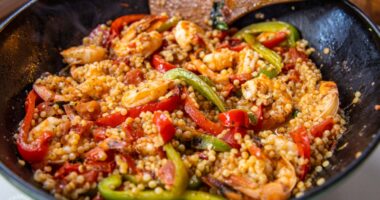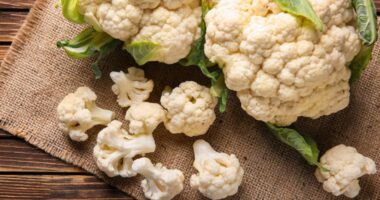Following a ketogenic diet is an excellent way to lose weight, but hunger is common and that can lead to overconsumption of food. To avoid this, the amount of protein an individual can eat before feeling full is important to know.
Imagine a world where you could eat as much of the protein you wanted – but still be in ketosis. Where you could consume copious amounts of protein all day long, and never miss a beat because you’re still in ketosis. Well, that world does exist, and we have the answer.
Today, there are a LOT of things to consider when it comes to nutrition and weight loss. When it comes to nutrition, it’s not enough to simply eat foods that are low in calories, because it isn’t necessarily what you are consuming that is making you fat. To understand the processes of ketosis, we first need to understand what ketosis is.. Read more about how much protein can i eat on keto and let us know what you think.
You’d think that as a long-time low-carb dieter and team member, I’d be out of ketosis by now. No.
Why You’re Not in Ketosis, my previous post, described why and how I addressed the issue (by limiting carbohydrate and protein intake to 20 and 60 grams per day, respectively).
But there was a snag. While it was wonderful to go back into ketosis, eating so little protein was irritating – 60 grams per day isn’t much for a meat eater like myself.
Is it possible to consume more protein while being in ketosis?
I was curious to learn more.
Test for Proteins
The following experiment was devised by me:
How much protein should I consume on a daily basis?
First, I’d increase my protein consumption by 60 grams per day to the point where I wasn’t in ketosis anymore.
I subsequently decreased my protein consumption until I was back in ketosis, calculating my daily protein limit based on the quantity of protein I had consumed the day before.
Finally, for a week, I ate according to this daily protein consumption, checking for accuracy and adjusting my protein intake as needed.
I added five lines to improve the experiment’s validity:
1. Maintain a daily carbohydrate intake of 10-20 grams 2. Continue to eat throughout the four-hour period (5:00-9:00 p.m.) 3. Make gradual changes to your protein consumption. 4. Make no other significant adjustments in your life. 5. Check your blood ketone level every morning before eating.
I said to myself, “Wow, that’s a good idea.”
But there’s one thing I hadn’t considered:
Preparation
I started the experiment by measuring my ketone blood level, which was 2.0 mmol/L.
This isn’t really surprising information: when in ketosis, I ate 45-60 grams of protein and 10-20 grams of carbohydrates nearly every morning for many weeks.
But it may be coming to an end soon – squirrel season has arrived.
Day 1: Mussels with taco cheese
I ate as I had been recently on the first day of the experiment: butter, eggs, minced meat, some veggies, but no berries or nuts. I had some wonderful cheese taco shells for added protein. That’s fantastic.

The day ended with 85 grams of protein (40 grams more than the day before), 10 grams of carbohydrates (ten grams fewer than the day before), and plenty of fat.
Is it possible that I’ll be out of ketosis by tomorrow morning?
Day 2: Pizza with a low carbohydrate content
It was 6:10 a.m. when I awoke. I dashed to the living room, sat at the dining room table, and prepared my ketone meter, a bit nervously. As the needle neared my finger, I thought to myself, “Not yet.”
I noticed this ten seconds later:

Oh, and I’m in ketosis, with 0.4 mmol/L more ketones than the day before! That was good news, but it was just the beginning.
What triggered the rise in ketones? Maybe it’s because we ate 10 grams less carbohydrates the day before, maybe it’s a random fluctuation (the blood ketone meter isn’t perfect), or maybe it’s something else entirely. I was undecided.
I boosted my protein and carbohydrate intake by eating extra veggies and raspberries and substituting a few pieces of the famous low-carb pizza for the crispy cheese taco shells. It’s fantastic!

100 grams of protein (+15 grams), 20 grams of carbohydrates (+10 grams), and a lot of fat are the day’s outcomes.
Will my ketone levels be able to withstand this barrage of carbohydrates and protein?
Day 3: More pizza, liver, eggs, and cheese!
I awoke early, dashed to the living room, sat at the dining room table, and plugged in my ketone meter. As the needle was going to pierce my finger, I thought to myself, “Oh no, not again.” I waited after touching the ketone strip.
I noticed this ten seconds later:

Ketosis, of course! Ketones were 0.4 mmol/L lower than yesterday, but the same as the first day when we ate 40 grams more protein. In addition, I increased my carbohydrate consumption from the day before.
What caused the ketones to drop? It might be because you’re consuming extra protein and/or carbohydrates, it could be due to random fluctuation, or it could be something else entirely. That was new to me.
I made the decision to give it a go. How much protein can I have in a day while staying under the 20-gram carb limit?
I ate liver, eggs, cheese, and low-carb pizza as well. I ate a lot, yet I felt totally satisfied after a time. I was sick to my stomach from overeating and went to bed unwell.

135 grams of protein (+35 grams), 20 grams of carbohydrates (+0 grams), and a lot of fat were the outcomes for that day.
Day 4: Are you still in ketosis?
I was very thirsty when I awoke. I walked to the living room, sat at the dining room table, and prepared my blood ketone meter after drinking a big glass of water. As the needle landed on my finger, I thought to myself, “Here we go again.” I waited after touching the ketone strip.
Of course, it’s time to bid ketosis farewell, bye, bye:

Really, 2.3 mmol/l?
My ketones were 0.3 mmol/L higher than the day before after consuming as much protein as I could digest. Not at all what I had anticipated.
From Day 4 to Day 10, I’m Eating as Much Protein as I Want
Is it possible for my daily protein consumption to exceed the quantity of protein I desire? Or was it possible that my body need more protein after weeks of not eating enough?
I decided to change the experiment to find out.
Rather of pushing myself to eat more and more protein, I decided to eat as much as I wanted for a week and see if I could break out of ketosis that way. If that’s the case, I’ll cut down on my protein consumption until I’m back to normal.
So for a week, I ate 80-130 grams of protein and 10-20 grams of carbohydrates per day, along with plenty of fat. What went wrong with my ketone levels?
They remained about 2.0 mmol/L every morning, indicating that they were still in ketosis.
Today brings a few shocks
Eating may be a challenge.
I still eat as much protein as I want, but I limit myself to 20 grams of carbohydrates per day, nearly every day.
I check my blood ketone levels once a week to make sure I’m not out of ketosis without realizing it. So far, there has only been one surprise: 0.5 mmol/L ketones the morning after dining at a Lebanese restaurant near HQ – most likely due to additional sugar.
It may be difficult to eat out.
What I’ve learnt as a result of these encounters
The most essential thing to remember when it comes to ketosis is to consume no more than 20 grams of carbs each day.
I just discovered that I had been misled for years and that I wasn’t really in ketosis. To figure out why, I conducted an experiment and found that I was consuming much too many carbohydrates and likely far too much protein.
I quickly cut my carb and protein consumption to a maximum of 20 and 60 grams per day, respectively, and was back in ketosis in no time.
I, on the other hand, did not like consuming just 60 grams of protein. I performed the protein experiment mentioned above to see how much more I could consume and still remain in ketosis.
This recent experience has shown me that I can consume 80-130 grams of protein per day without falling out of ketosis for many weeks or longer.
So, for me, reducing my carb intake to fewer than 20 grams per day is the key to ketosis.
Let’s speak about you now.
In ketosis, how much protein can I consume?
The first thing to keep in mind is that not everyone need ketosis. As part of a low-carb diet, many individuals do well without them. However, remaining in ketosis may help with mental and physical performance, as well as weight reduction and other health advantages including managing epilepsy and migraines.
Here’s what he has to say about getting into ketosis:
To begin, keep your carbohydrate consumption around 20 grams of net carbohydrates. After that, make sure you’re getting enough protein. If at all feasible, aim for 1.2 to 2 grams of protein per kilogram of body weight each day (about 0.7 grams per pound). If you weigh 70 pounds, that’s approximately 85 to 140 grams of protein each day (154 lbs).
Overeating protein is the most frequent error that prevents individuals from achieving ketosis. There are much too many carbohydrates.
What is the maximum amount of protein you can consume? It depends on the situation.
I can consume a lot more protein and yet remain in ketosis, as this article demonstrates. Is it something you’re capable of?
It depends on the situation.
You can definitely consume a lot more protein if you’re like me, a 36-year-old insulin-sensitive guy who weighs 152 pounds, exercises 10-15 minutes five times a week, and isn’t fat or diabetic.
If you are overweight or have high blood sugar, however, you should stay closer to the lower end of the moderate range.
There are two options if you wish to increase your protein intake while staying in ketosis:
A. Increase Your Training Time

Your body need more protein when you workout. Walking, running, and weight training are all beneficial exercises.
You may boost your protein intake by exercising more. Measure your blood ketone levels on a regular basis and modify your protein diet appropriately to prevent eating too much protein.
Remember that your daily carbohydrate consumption should not exceed 20 grams.
B. Determine Your Daily Protein Intake to Stay in Ketosis

Perhaps your daily protein consumption for staying in ketosis varies from what is often recommended?
To find out, take these steps:
1. Purchase a blood ketone meter with test strips (this is optional).
2. For a week, consume fewer than 20 grams of carbs each day. Then, in the morning, before you eat anything, check your ketone levels.
3a. Increase your protein intake progressively over the following week if your blood ketone level is 0.5 mmol/L or higher. Every morning, check your blood ketone levels to see what occurs.
How much protein can you consume in a day before your ketones go below 0.5 mmol/L? Reduce the amount of protein you consume.
Continue to monitor your ketones for a few more days, and if you’re always in ketosis, just do so once a week.
When you come out of ketosis, you should limit your carb intake to no more than 20 grams per day. If you’re currently eating protein but your ketone levels aren’t where they should be, cut down on it a little.
3b. Reduce protein consumption during the following week if blood ketones are less than 0.5 mmol/l. Every morning, check your blood ketone levels to see what occurs.
To get ketones over 0.5 mmol/L, how much protein should be cut back? Consume a little less protein than you already do*.
Continue to monitor your ketones for a few more days, and if you’re always in ketosis, just do so once a week.
When you come out of ketosis, you should limit your carb intake to no more than 20 grams per day. If you’re currently eating protein but your ketone levels aren’t where they should be, cut down on it a little.
* Consuming less than 0.4 grams of protein per pound of target weight for a prolonged length of time is not recommended. Protein is required.
There are three questions that follow.
1. What happens if I consume more than 140 grams of protein in a single day?
I’m not sure.
When the body no longer requires protein, ketone levels in the blood begin to decrease, in my view. It most likely turns the additional protein into glucose at this moment, which raises blood sugar and lowers ketones in the blood.
I’m not going to attempt it since I don’t want to consume any more protein than I already do.
2. What if I consume 80-135 grams of protein each day for months or years?
I’m not sure.
I believe it will keep me in ketosis – the results of the trial indicate that it will – but I don’t know for sure. I’ll continue to track my ketones on a weekly basis and report back later this year.
3. What happens if I don’t move as much?
I’m not sure.
I believe it lowers blood ketone levels since the body requires less protein, but I’m not sure when it occurs.
Next
This is the second of three blog posts in a series. The following is the next one: What you can eat while you’re in ketosis
Are you ready to finally reduce weight?
Our new 10-week program will assist you in losing weight in a healthy and long-term manner.
Now is the time to register!
I think you can eat as much protein as you want in ketosis. I first became interested in ketosis at the start of last year, when I realized that I could eat as much protein as I wanted and not lose any weight. I don’t think this was a coincidence; I believe that ketosis is the most effective weight loss protocol on the planet.. Read more about i ate too much protein today keto and let us know what you think.
Frequently Asked Questions
How much protein can you eat and stay in ketosis?
This is a difficult question to answer. It depends on your body, metabolism, and other factors.
How much protein do I need Keto?
The average adult needs about 56 grams of protein per day.
Does protein speed up ketosis?
This is a difficult question to answer. Protein, when consumed in excess, can cause the body to break down muscle tissue and release amino acids into the blood stream. These amino acids will then be converted into glucose by the liver, which can lead to ketosis.



